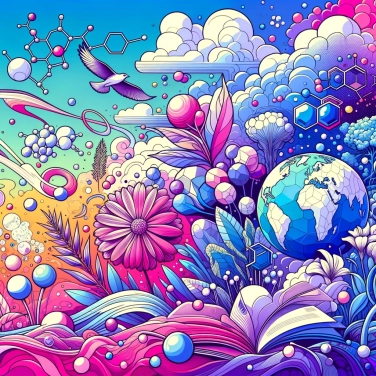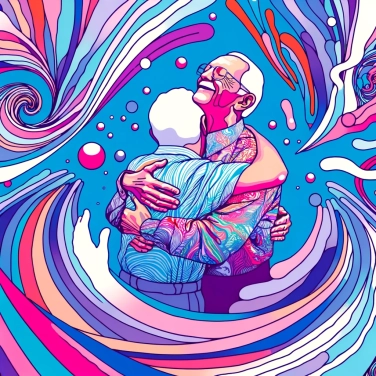In detail, for those interested!
Endorphins: hormones of happiness
Endorphins are hormones produced by the brain that act as neurotransmitters. They are often called "happiness hormones" because of their ability to induce feelings of well-being and pain relief. Endorphins are released in response to various stimuli, such as physical exercise, spicy food, laughter, and physical contact. They play a crucial role in mood regulation, stress management, and pain perception. Endorphins act by binding to opioid receptors in the brain, which leads to a decrease in pain sensation and an increase in pleasure sensation. In addition to their role in pain modulation, endorphins also help strengthen the immune system, reduce anxiety, and improve sleep quality.
Impact of physical contact on endorphin release
Physical contact, such as hugs, massages, or even simple touch, can have a significant impact on the release of endorphins in the body. Several scientific studies have shown that touch and physical contact activate neurological pathways that trigger the release of endorphins in the brain. Endorphins are neurotransmitters that act as natural painkillers and provide a sense of well-being and pain relief.
When a person receives a hug or is touched, sensory receptors in the skin send signals to the brain, thus triggering the release of endorphins. These endorphins then act on opioid receptors in the brain, reducing the perception of pain and inducing a feeling of pleasure and relaxation. Physical contact can therefore play an essential role in pain modulation and stress relief.
It is interesting to note that simply holding someone's hand, giving a hug, or receiving a massage can stimulate the release of endorphins. These moments of physical contact can help reduce stress, anxiety, and depression, while promoting a more positive emotional state. Furthermore, the endorphins released during these moments of closeness can strengthen social bonds and enhance interpersonal relationships.
In summary, physical contact plays a crucial role in the release of endorphins, these "happiness hormones" that contribute to emotional and physical well-being. Positive physical interactions can therefore be beneficial for mental and emotional health, promoting feelings of well-being, comfort, and connection with others.
The benefits of endorphins for well-being
Endorphins, known as the "happiness hormones", have a significant impact on well-being. Their release is associated with a reduction in stress, an increase in pleasure sensation and pain relief.
When endorphins are released in the body, they act as natural painkillers, helping to alleviate pain. They work similarly to opioids by binding to opioid receptors in the brain to block the transmission of pain signals.
In addition to their role in pain management, endorphins are also involved in mood regulation. Their release is associated with a sense of well-being, satisfaction, and calm. This can help reduce feelings of stress and anxiety, promoting a positive mindset.
The benefits of endorphins for well-being are not limited to the physical and emotional aspects. Their effect on the immune system has also been studied. Research suggests that endorphins can strengthen the immune system, contributing to overall better health.
In summary, endorphins play an essential role in promoting well-being by acting as natural pain relievers, improving mood, and strengthening the immune system. Stimulating the release of endorphins through physical contact and other activities can be beneficial for our health and quality of life.
![Explain why some countries change time zones?]()
![Explain why Alexander the Great refused to wear shoes.]()
![Explain why Alexander the Great always wore an impressive helmet.]()
![Explain why the last Chinese emperor was so young when he came to power?]()





















